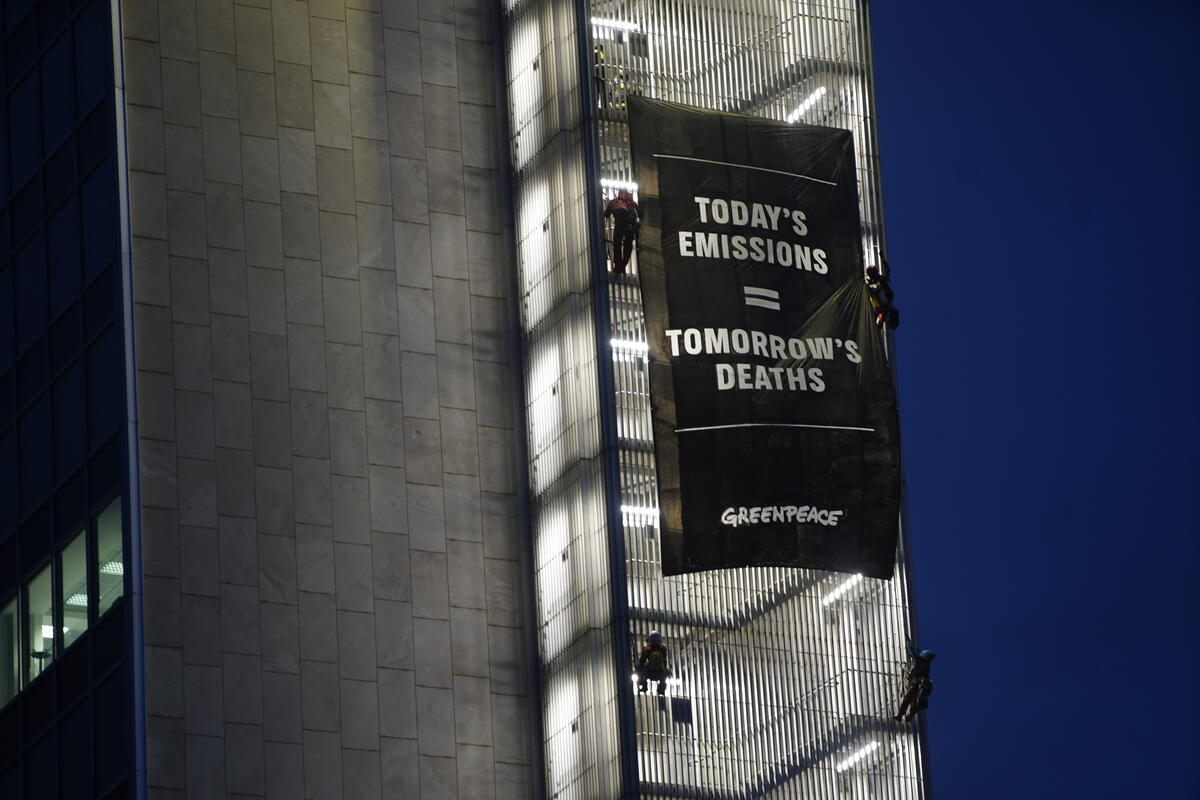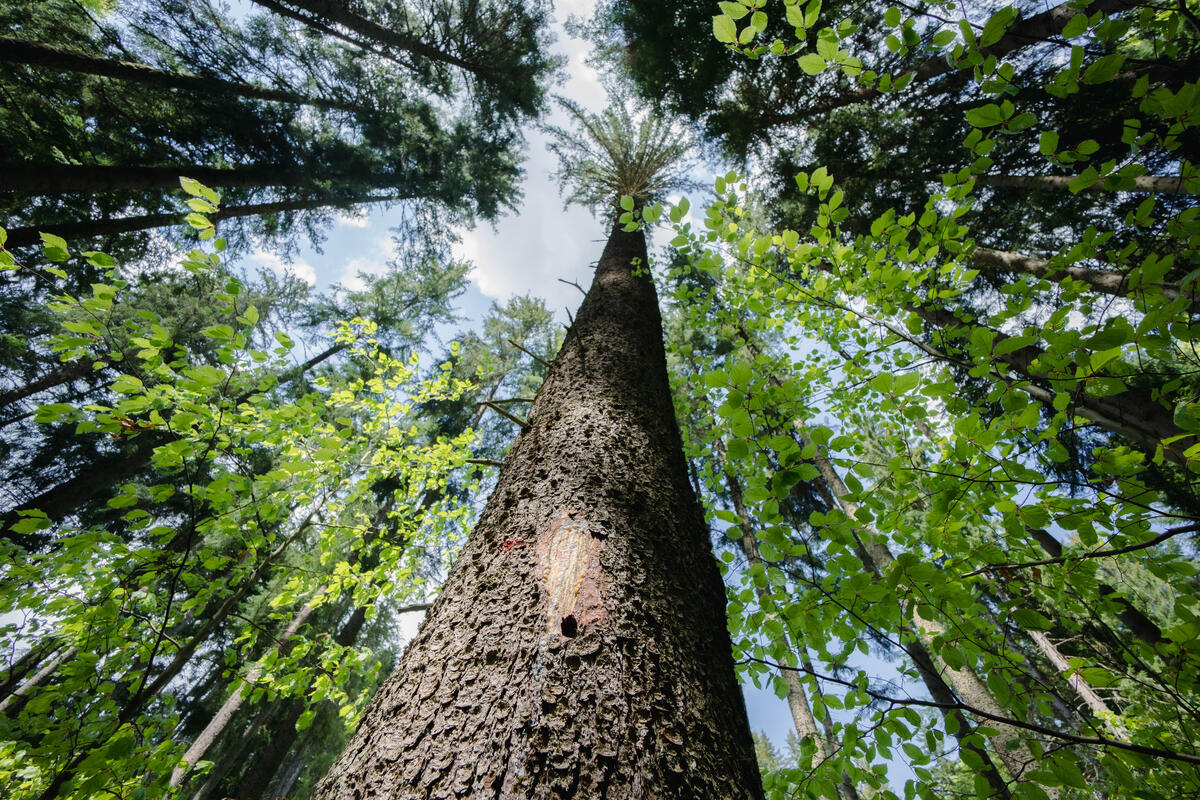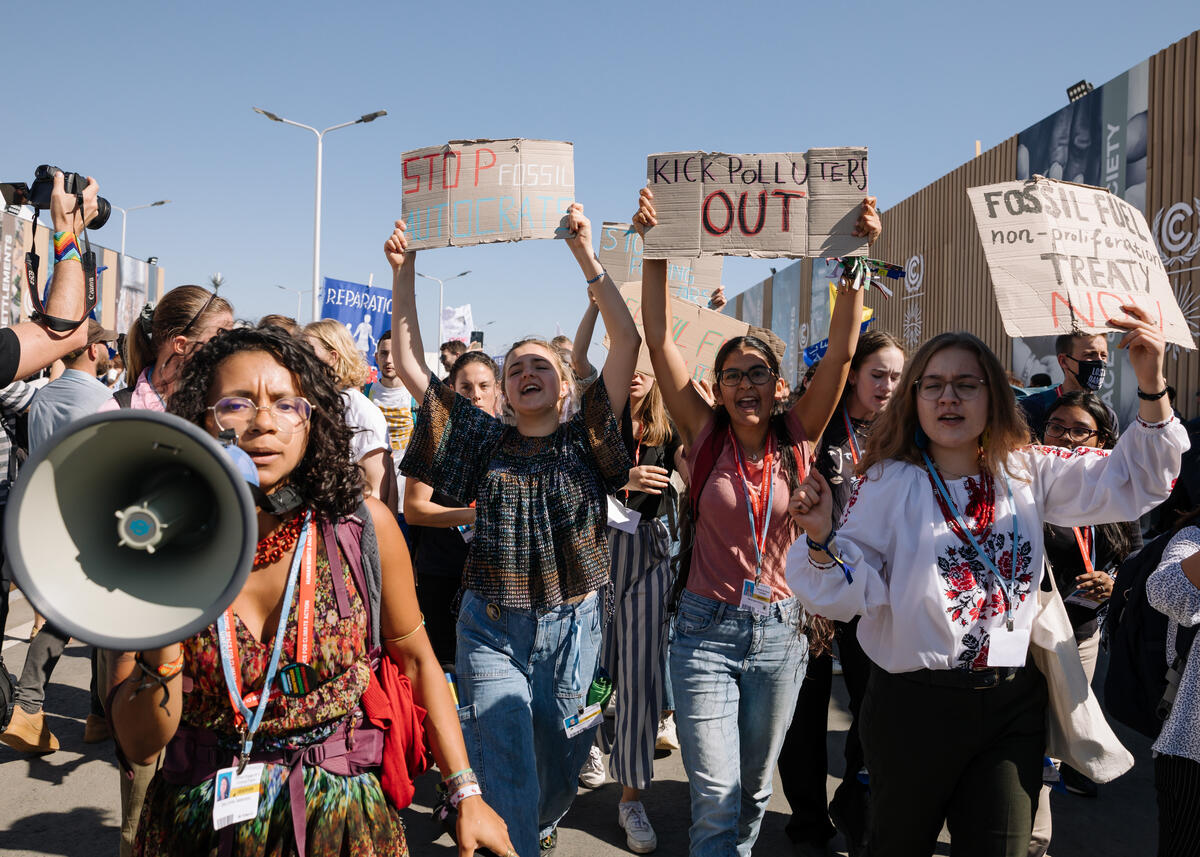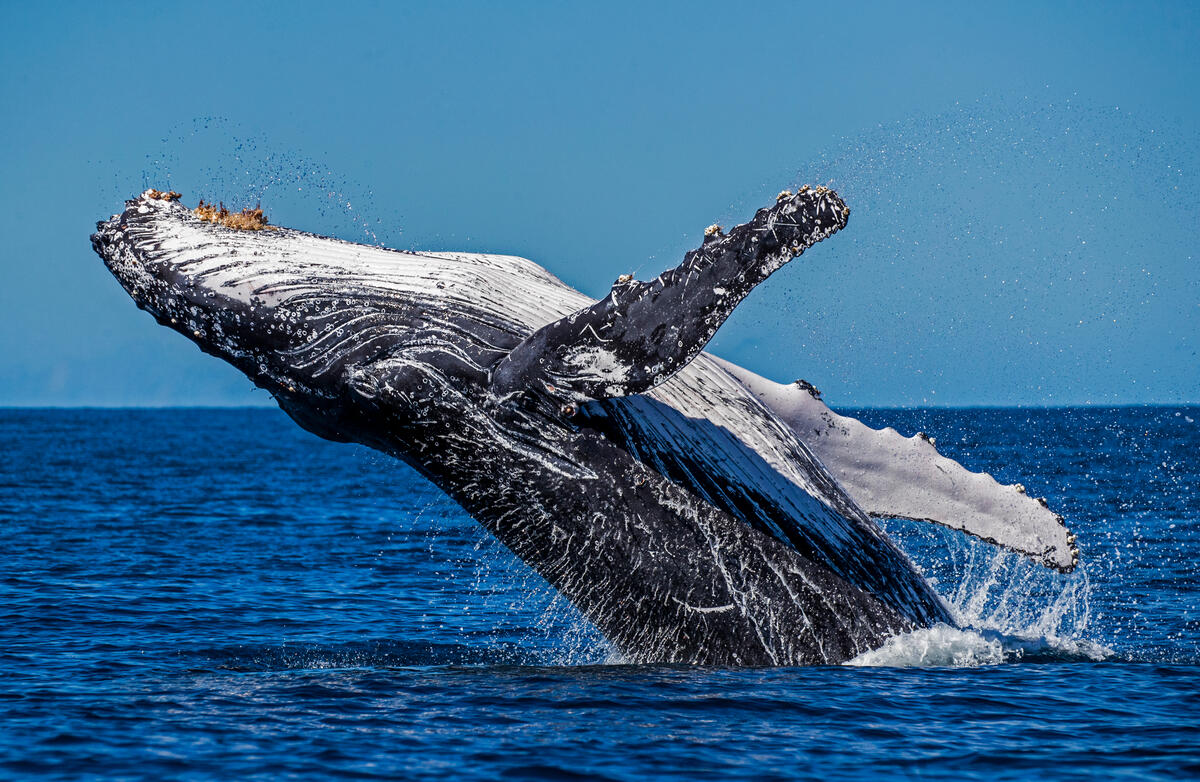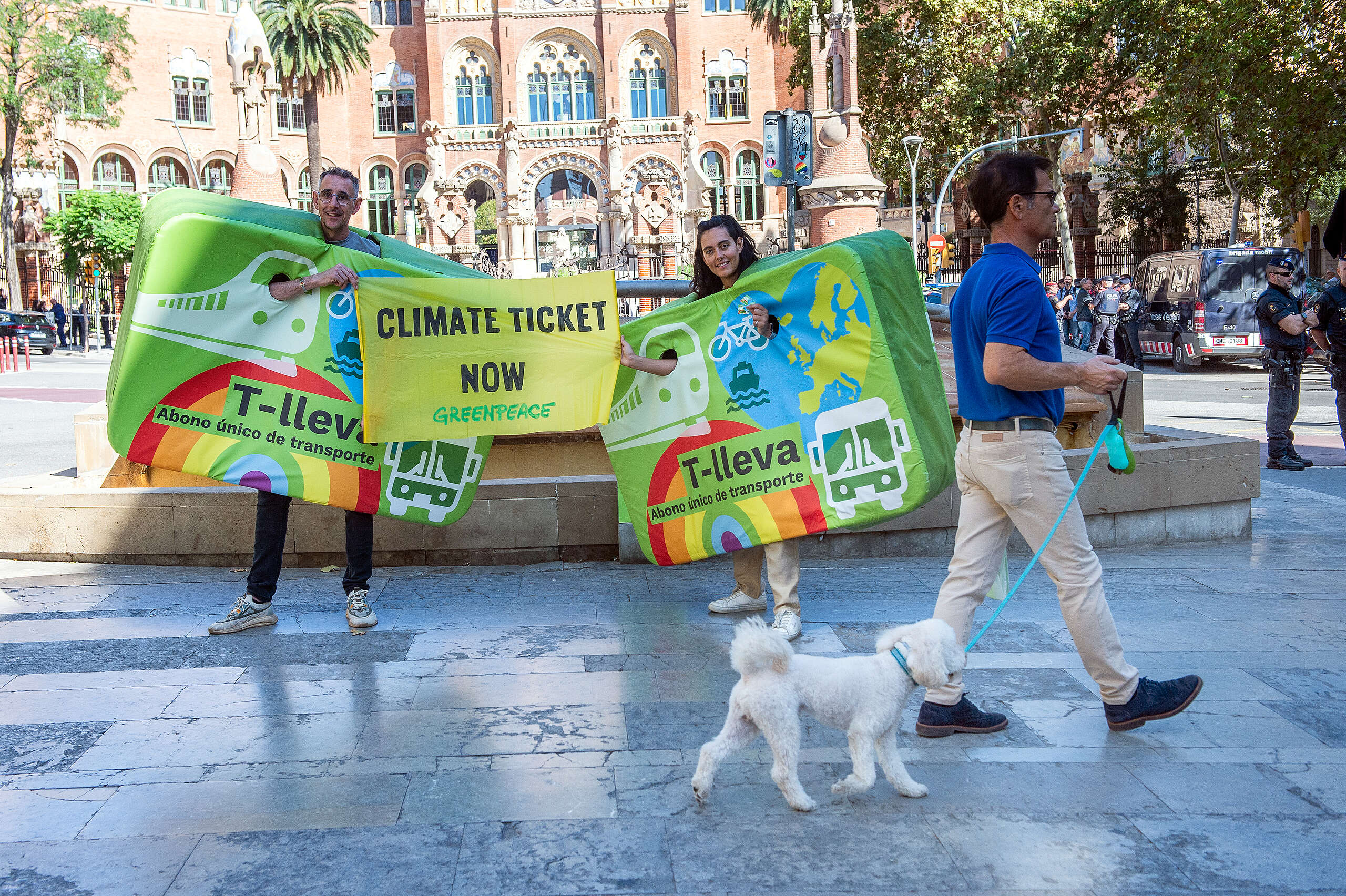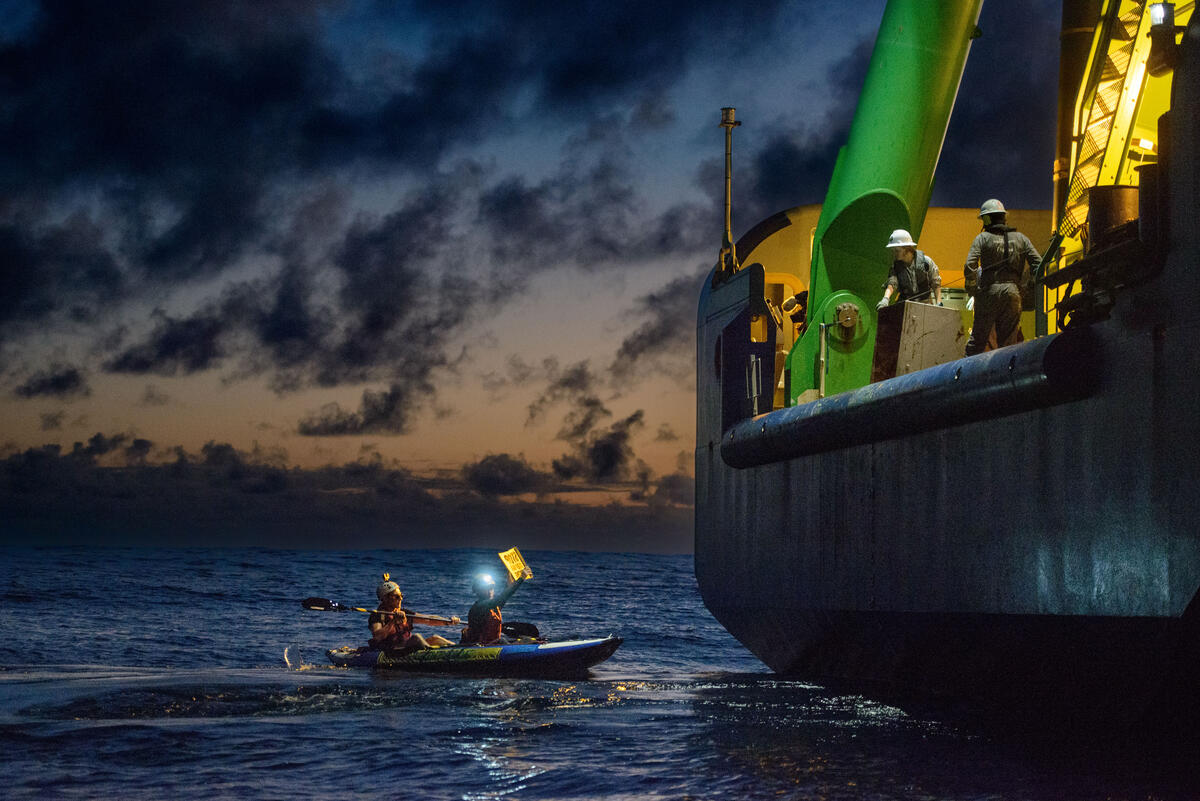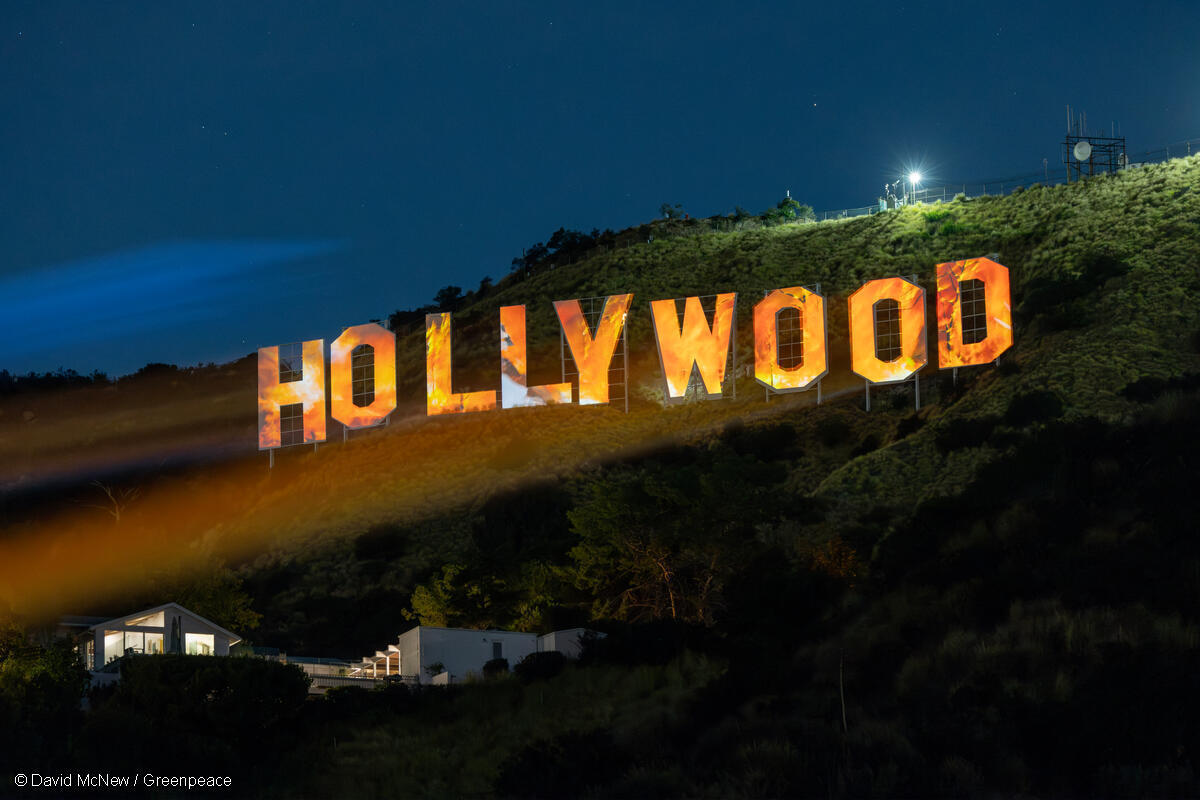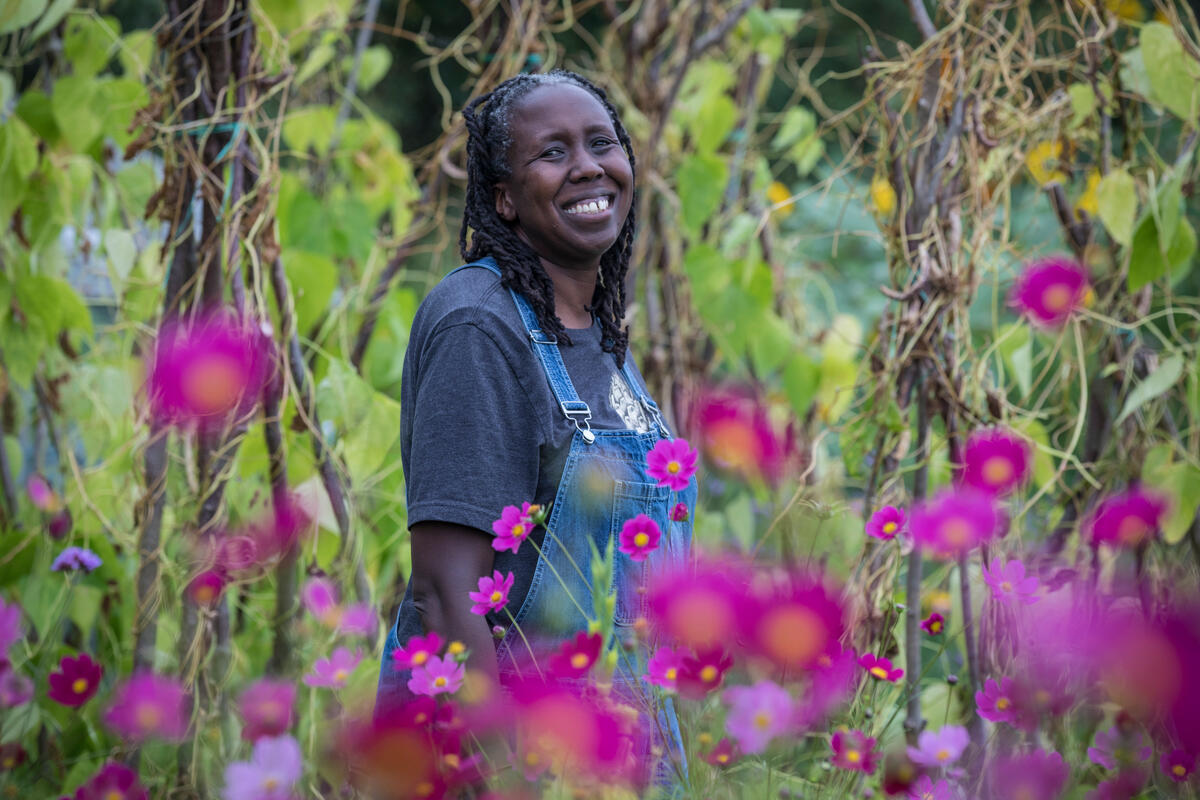-
‘Getting away with murder?’: European Oil and Gas majors’ 2022 emissions alone could cause at least 360,000 temperature-related premature deaths before 2100
An estimated 360,000 people could die prematurely before the end of the century because of global heating caused by the 2022 greenhouse gas emissions of nine major European oil and gas companies alone.
-
Greenpeace activists scale 140-metre crane to call out Australia’s biggest climate threat Woodside
Greenpeace Australia Pacific activists scaled a 140 metre crane and dropped a 25-metre banner calling out fossil fuel giant Woodside as Australia's greatest climate threat.
-
Alternatives to Hot Air
The establishment of carbon markets under the Paris Agreement has delivered little to address the climate and biodiversity crisis. Time for risky offset gambles is over.
-
Time for action: COP28 State of Play
There’s been a steady flow of announcements coming from the sun-baked COP28 over the first few days.
-
Good news stories from around the world – Oct/Nov
Notable wins in the climate and environmental justice space to inspire us in our fight for a better, greener, and fairer world for all.
-
A demand for peace
Greenpeace demands an immediate end to the blockade that is preventing massive and urgent humanitarian aid from reaching the people of Gaza.
-
Court confirms Greenpeace right to peaceful protest as activists’ 200 hour long protest against deep sea mining in the Pacific continues
A Dutch court has largely rejected a request by a deep seabed mining company to issue an injunction against protest by Greenpeace International, stating that it is "understandable" the organisation has resorted to direct action in the face of the "possibly very serious consequences" of the company's plans.
-
Greenpeace calls on world leaders to take climate action with ‘burning’ Hollywood Sign in California
In a dramatic video projection, Greenpeace USA appears to have doused the iconic Hollywood Sign in oil and set it on fire.

